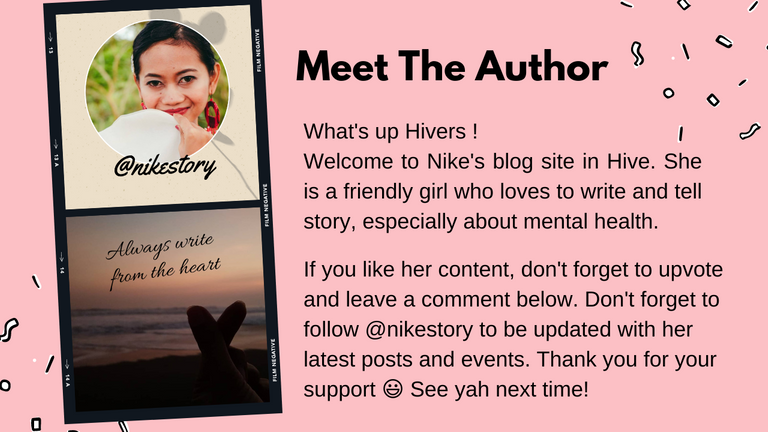
Self-harm or self-injury means hurting yourself on purpose. One common method is cutting with a sharp object. But any time someone deliberately hurts themself is classified as self-harm.
Hurting yourself—or thinking about hurting yourself—is a sign of emotional distress. These uncomfortable emotions may grow more intense if a person continues to use self-harm as a coping mechanism.
It may help you express feelings you can’t put into words, distract you from your life, or release emotional pain. Afterwards, you probably feel better—at least for a little while. But then the painful feelings return, and you feel the urge to hurt yourself again.

Why people self harm?
You might think why people can have idea to hurt theirself, it sounds crazy or difficult to be understood.
The urge to hurt yourself may start with overwhelming anger, frustration or pain. When a person is not sure how to deal with emotions, or learned as a child to hide emotions, self-harm may feel like a release. Sometimes, injuring yourself stimulates the body’s endorphins or pain-killing hormones, thus raising their mood. Or if a person doesn’t feel many emotions, they might cause themself pain in order to feel something “real” to replace emotional numbness.
Like what I experienced when I was in my depression phase, when I felt so many negative feelings and my mind couldn't stop thinking of many bad things about myself, I would hit my head using my hands many times. I just couldn't bear all my feelings and pain anymore, so when I hurt myself I felt release. But then I realized it was wrong and I need to find the better way to release my pain or emotion.

How to Stop Self Harm?
Whatever the reasons for self-harming, it’s important to know that there is help available if you want to stop. You can learn other ways to cope with everything that’s going on inside without having to hurt yourself.
The first step in getting help is talking to a trusted adult, friend or medical professional who is familiar with the subject, ideally a psychiatrist.
Don't hide it when you experience this.
Find help as soon as possible.
When I did self harm, I was able to stop because someone help me. It was difficult to stop it by myself. That's why it's important to talk to someone you trust.
When you talk to someone about self harm, focus on your feelings. Instead of sharing detailed accounts of your self-harm behavior focus on the feelings or situations that lead to it. This can help that person in better understand where you’re coming from. It also helps to let the person know why you’re telling them. Do you want help or advice from them? Do you simply want another person to know so you can let go of the secret?
The second step is identifying your self-harm triggers. Understanding what triggers you to self-harm is a vital step towards recovery. If you can figure out what function your self-injury serves, you can learn other ways to get those needs met-which in turn can reduce your desire to hurt yourself. Self-harm is most often a way of dealing with emotional pain. What feelings make you want to hurt yourself? Sadness? Anxiety? Anger? Loneliness? Shame? Emptiness?
If you’re having a hard time pinpointing the feelings that trigger your urge to hurt yourself, you may need to work on your emotional awareness. Emotional awareness means knowing what you are feeling and why. It’s the ability to identify and express what you are feeling from moment to moment and to understand the connection between your feelings and your actions. Feelings are important pieces of information that our bodies give to us, but they do not have to result in actions like self-harming.
The idea of paying attention to your feelings—rather than numbing them or releasing them through self-harm—may sound frightening to you. You may be afraid that you’ll get overwhelmed or be stuck with the pain. But the truth is that emotions quickly come and go if you let them. If you don’t try to fight, judge, or beat yourself up over the feeling, you’ll find that it soon fades, replaced by another emotion. It’s only when you obsess over the feeling that it persists.
After long time and a lot of practice now I understand and became aware more about what are the things that trigger me to feel depressed then try to self harm. Mostly is when I felt rejected by someone close to me even just by a simple act or words. Feeling rejected and ignored are my big trigger. If you haven't know what triggers you, try to pay attention to your feelings more. Always ask yourself when you want to do self harm, what am I feeling right now? Why do I feel this? Why this condition/situation hurt me?
The third step is finding new coping techniques. Self-harm is your way of dealing with unpleasant feelings and difficult situations. If you’re going to stop, you need to have alternative ways of coping.
If you self-harm to express pain and intense emotions, you could:
- Paint, draw, or scribble on a big piece of paper with red ink or paint
- Start a journal in which to express your feelings
- Compose a poem or song to say what you feel
- Write down any negative feelings and then rip the paper up
- Listen to music that expresses what you’re feeling
If you self-harm to release tension or vent anger, you could:
- Exercise vigorously—run, dance, jump rope, or hit a punching bag
- Punch a cushion or mattress or scream into your pillow
- Squeeze a stress ball or squish Play-Doh or clay
- Rip something up (sheets of paper, a magazine)
- Make some noise (play an instrument, bang on pots and pans)
Find something that can make you feel relax or something to express your feeling. For me taking deep breath few times, also try to watch my fish pet can be helpful.
- pictures are free from : pixabay.com
- References :
https://www.nami.org/About-Mental-Illness/Common-with-Mental-Illness/Self-harm
https://www.helpguide.org/articles/anxiety/cutting-and-self-harm.htm
Would love to read your response and your stories too.
Together spreading #mentalhealthawareness
